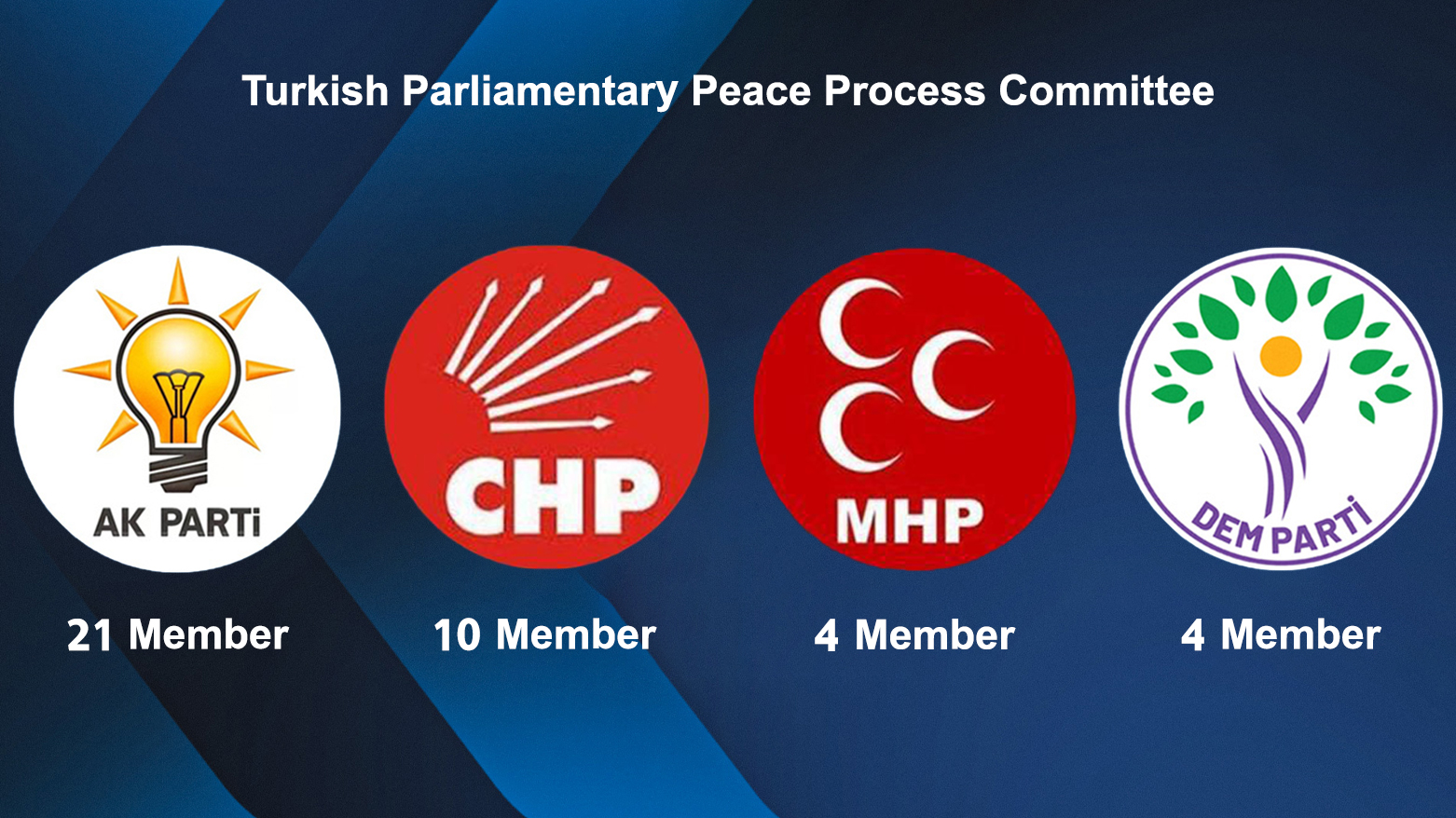Turkey's Peace Process Commission Holds First Meeting: Objectives and Proposals Unveiled
Turkish Parliament's new Peace Process Commission holds first session with 51 members from 11 parties. Tasked with drafting legal framework for Kurdish resolution, it faces ideological divides over naming and approach before October deadline.

ERBIL (Kurdistan24) – The newly established Commission for the Peace Process in the Turkish Parliament held its inaugural session on Monday, August 5, 2025, marking a pivotal step toward shaping a legislative framework for a long-term political solution to the Kurdish issue and revitalizing the broader peace process across Turkey.
The formation of the commission follows recent remarks by Nationalist Movement Party (MHP) leader Devlet Bahçeli, reigniting the peace discourse. The process, once marked by key stages such as the İmralı talks and formal delegations, has now entered a structured and legal phase with the launch of this commission.
The commission consists of 51 members representing various political parties in the Turkish Parliament. Its core objective is to draft a legal foundation for advancing the peace process through institutionalized and democratic mechanisms.
The party representation within the commission is as follows:
-Justice and Development Party (AK Party): 21 members
-Republican People’s Party (CHP): 10 members
-Nationalist Movement Party (MHP): 4 members
-Peoples’ Equality and Democracy Party (DEM Party): 4 members
-New Path Alliance (DEVA, Future, Saadet): 3 members
-Huda-Par, Yeniden Refah, Workers’ Party of Turkey (TİP), Labour Party (EMEP), Democratic Left Party (DSP), and Democrat Party (DP): 1 member each
-İYİ Party: has declined to participate, despite holding 3 eligible seats
A key point of discussion in the opening session was the name of the commission itself, with each party proposing a title that reflects its political vision. This divergence underscores the varied approaches to the peace process:
-AK Party: “Turkey Without Terror”
-DEM Party: “Peace and Democratic Society”
-CHP: “Democracy, Justice, and Social Reconciliation”
-MHP: “National Unity and Equality”
The commission will focus on several critical areas that are expected to significantly impact the future direction of the peace process:
1-Drafting New Legislative Proposals – Preparing legal recommendations that promote institutional advancement of the peace efforts.
2-Amending Existing Laws – Revising or reforming current laws, especially the Anti-Terror Law and Penal Code, to align with reconciliation goals.
3-Addressing the PKK Issue – Exploring paths for post-conflict resolution and legal considerations regarding members of the Kurdistan Workers' Party (PKK).
All recommendations developed by the commission will be submitted to Parliament for final voting.
Decisions within the commission will be passed by majority vote. Its mandate is scheduled to continue until October 1, 2025, by which time it must complete its work. The initiative has been widely interpreted as a potential turning point and a renewed opportunity to seek a lasting and inclusive political solution to one of Turkey’s most enduring national challenges.
Commission Approves Framework and Sets Next Meeting
Following the commission’s first session, the Turkish Grand National Assembly (TBMM) confirmed via its official social media accounts that the commission has been officially named the “National Solidarity, Brotherhood and Democracy Commission”. The working procedures and principles guiding the commission were unanimously approved during the session.
The TBMM emphasized that the commission was formed to strengthen social cohesion, promote national solidarity and brotherhood, and evaluate legislative reforms related to freedom, democracy, and the rule of law. The meeting was chaired by Speaker of Parliament Numan Kurtulmuş.
The commission will reconvene for a second session on Friday, August 8, 2025, at 2:00 PM in the Grand Assembly’s ceremonial hall. The ministers of interior and defense—Ali Yerlikaya and Yaşar Güler, respectively—as well as National Intelligence Organization (MİT) Chief İbrahim Kalın, have been invited to brief the commission on institutional efforts and current developments.
The Assembly also noted that official updates regarding the commission’s activities will be exclusively communicated by the Presidency of the Turkish Grand National Assembly.
Updated at 9:20 PM...
